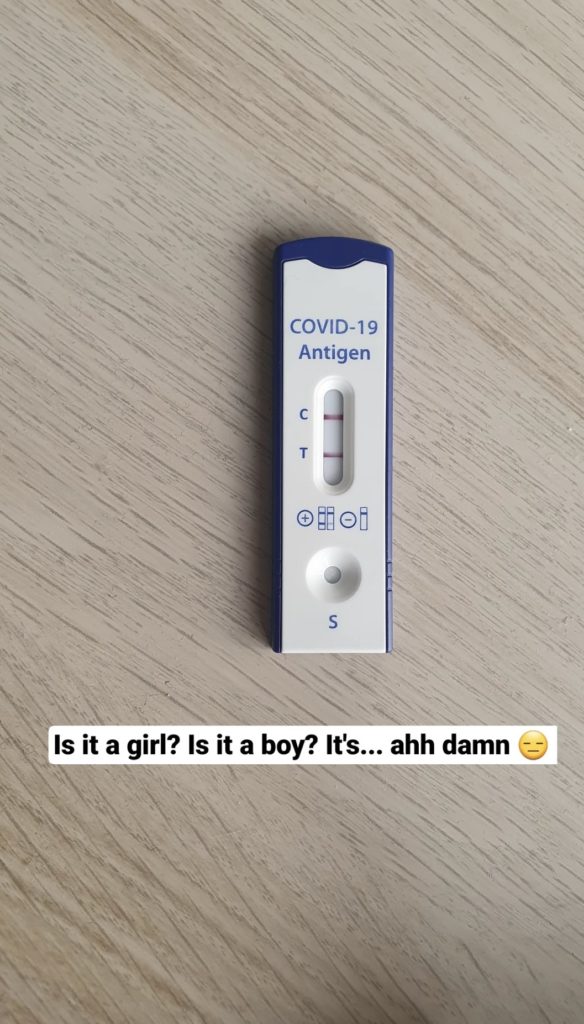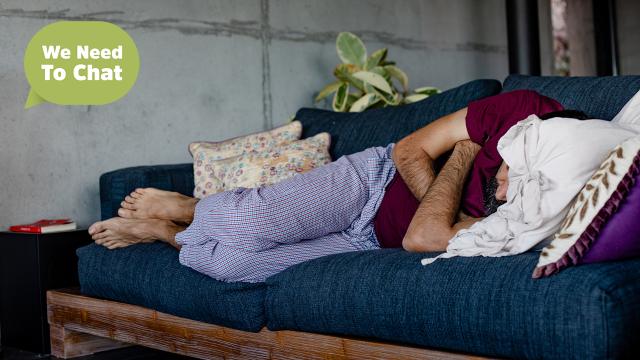Like many unfortunate souls, I brought in Christmas and the New Year with what was the most accurate summation of the madness that was 2021. I got COVID.
After two years of restrictions, lockdowns and a never-ending stream of news stories about the virus, seeing those two lines on my RAT felt a little strange and surreal. Indeed, friends who have also tested positive recall similar feelings mixed with anxiety and concern.
Of course, these thoughts are hardly surprising and especially understandable in the current context. Where most of the world experienced high case numbers from the onset of the pandemic, Australia is only now starting to experience the exponential cases that used to only reach our ears through international news reports.
We went from a situation where narrowly missing an exposure site gave you a war story to tell your friends, to a new reality where Service NSW seems to have a new case alert for every new door you walk through. From chasing ‘doughnut days’ and lamenting when case numbers hit double digits (remember that?) to close to 100,000 daily cases. Australia is no longer the outlier. We are the story we used to only hear about on the news.
Understandably, the combination of the speed with which our situation has changed, confronting the very real possibility of catching COVID and dealing with isolation has had significant impacts on mental health.
Accordingly, while we ought to continue following the health advice for our physical wellbeing, it’s also high time that we prepared ourselves for how to deal with the mental health impact of COVID if you (or someone you know) tests positive.
Dealing with testing positive
After making the obligatory Instagram post of my positive RAT and being sent an influx of the top spicy cough memes of the day, I geared myself for what I anticipated to be a 7 day Netflix binge.
However, as much as I thought I’d be immune from it, anxious thoughts about the possibility of long COVID and the many unknowns of the virus started to creep in.
The grand plan of a Netflix binge was replaced with scrolling through the latest COVID articles & medical journals (which in hindsight was a bit ambitious coming from a guy who didn’t do HSC science).
The anxious reactions to a COVID diagnosis is something that Lysn psychologist Nancy Sokarno has also observed. However, she highlights that there are a number of ways to deal with it.

Sokarno noted that it’s important to understand your anxiety and recognise that anxieties usually emerge around something that might happen; it’s not a guarantee that it will.
She observed that “most of the fear is usually associated with fear of the unknown and whilst those feelings are valid, sometimes we can catastrophise rather than think rationally.”
For me, remembering that we’re fortunate enough to have a very real line of defence in the form of vaccines was a helpful tool in easing those concerns. Naturally, it’s also important to follow the health advice and monitor symptoms to understand when to seek further help.
It’s also of no surprise that the endless anxious scrolling for COVID news and information follows the law of diminishing returns. Nancy advised that it’s important to stay informed but not to obsess.
Of course, avoiding the topic of COVID with 24-hour news cycles, daily conversations and the sight of empty shopping shelves makes it much easier said than done. But there are a few ways to combat this.
For instance, drawing up boundaries on conversations by requesting friends avoid regularly talking about COVID in everyday conversation may help break the constant stream of pandemic-related content. Nancy added that a digital detox – avoid the news and the Insta feed scroll for a day or two – can also be helpful.
Staying COVID positive in isolation: tips on looking after your mental health
Even though we’ve had our fair share of practice in lockdown, staying positive in isolation can still be challenging.
Sokarno recommended using gratitude practices as a way of managing a negative headspace. Connecting with friends and family (think virtual Netflix parties, cook-offs and trivia nights) is also a nice distraction.
Personally, I found that while being stuck on your own can be frustrating at times, there can be a positive spin to it too. What I mean by that is, everyday life has its own demands – whether it be work, family, relationships, or the crippling weight of a pandemic in general.
Making time for yourself to reflect or to just enjoy some guilt-free laziness is hard to come by. Viewing my isolation through a lens of it being a rare, uninterrupted opportunity to prioritise myself, reflect on the year gone by and understand my own goals was something that made that time a lot more rewarding.
But if nothing else, a solo pizza party with the liberty to not share any slices is also a major mood lifter.

Supporting someone with COVID – dos and don’ts
There’s no single magical formula when it comes to helping someone who is feeling particularly anxious when it comes to COVID.
As Sokarno highlighted, “this really depends on the person because everyone has different concerns or experiences when it comes to COVID”. She shared that offering your assistance, whether through delivering care packages, being the person they can call or sharing a virtual games night can be of great help.
In contrast, there are a few things you can be sure not to do.
One of those things is dismissing the fears some may have about their diagnosis. As Sokarno highlighted, “phrases like ‘don’t worry, it’s just the flu’ and ‘everyone is going to get it’ are definite no-nos”.
I think this is especially important to remember for those (like me) who have since recovered and only experienced mild symptoms. Indeed, it’s easy to feel invincible after ‘conquering’ the virus so some may forget the fear many understandably feel when confronting the illness we’ve been warned about non-stop for over two years.
This is in addition to the fact the physical symptoms of the virus can impact people very differently. Instead, listen to and support loved ones through the anxieties they may have.
These are really difficult times, but there is a strange comfort in knowing that they’re times we all share; we’re not alone in that regard. In the meantime, share your stories, reach out, speak to a professional and scoff down that pizza. There is a way through and help is always available.
If you or anyone you know needs support:
- Lifeline (24/7 crisis support service) – 13 11 14
- NSW Mental Health Line – 1800 011 511
- Beyond Blue Helpline – 1800 512 348
- National sexual assault and domestic violence helpline – 1800 RESPECT (1800 737 732)
Khushaal is a past winner of the Premier’s Multicultural Youth Medal, lawyer and freelancer. His infatuation with pizza is likely because it’s the only thing he can cook well.
With thanks to Nancy Sokarno. Nancy is a psychologist at Lysn.

Leave a Reply
You must be logged in to post a comment.